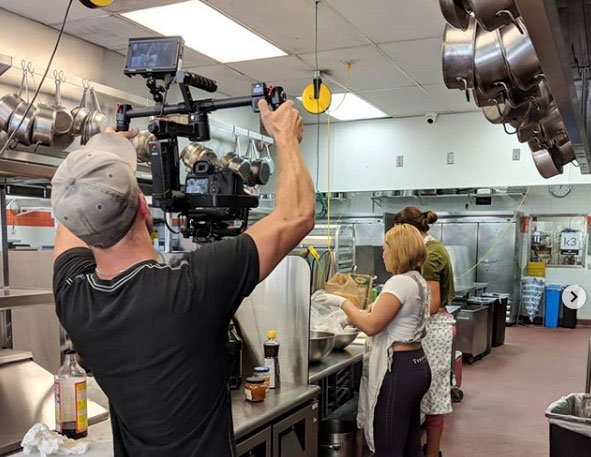The cash is still gushing into the delivery ecosystem, with Kitchen United recently announcing another $40 million infusion to the Google-backed national ghost kitchen operator. Its Series B funding round was co-led by RXR Realty, one of New York City’s largest real estate owners, investors and developers.
With the new affiliation with RXR, Kitchen United will enter the New York City market, with ghost kitchens opening in RXR and other properties in the greater tri-state area. The company will continue to seek out new locations in its primary growth markets, Chicago, Los Angeles, San Francisco and Boston. This latest money is Kitchen United’s second big haul, having received a $10 million Series A led by Google Ventures last fall.
“We share Kitchen United’s vision for the future of the restaurant industry and believe the consumer shift toward [off-premises] dining is already having a huge impact on both residential and commercial real estate,” said Scott Rechler, chairman and CEO of RXR Realty.
Kitchen United has attracted an outsized share of buzz in the ghost kitchen space, along with CloudKitchens and Zuul Kitchens, which recently opened a location in New York City’s SoHo neighborhood. Kitchen United currently has operating locations in Chicago and Pasadena, California, with several future locations planned in major U.S. cities on its way to a stated goal of 400 kitchen centers in the next few years.
“In just over two years, we have only scratched the surface on the massive opportunity for brands to serve their guests where they want to be served, which is increasingly outside their traditional four-wall space,” Collins said.
RXR manages 68 commercial real estate properties and investments worth approximately $18.8 billion, comprising approximately 24.5 million square feet of commercial operating properties and approximately 6,300 multi-family residential and for-sale units in various stages of development in the New York metro area.
Delivery-only ghost kitchens are intended to sidestep high real-estate costs, one of the most challenging aspects of the traditional restaurant business. Lower-cost, less-visible locations focused exclusively on delivery are intended to help restaurants generate higher profits compared with integrating delivery into existing restaurant kitchens.
Big-time real estate developers getting into the ghost kitchen space is a notable milestone, especially in light of WeWork’s pre-IPO flameout that continues to play out in the press. It’s safe to assume that landlords and developers with under-utilized light industrial spaces or basement-level commercial spaces are licking their chops at the prospect of thousands of ghost kitchens coming online in the next few years.


